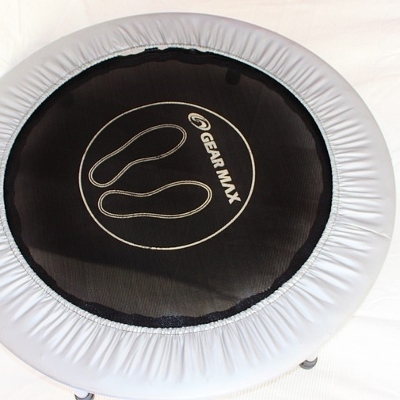 Being dubbed the Senior Fitness Specialist here at My Fitness Tunes hopefully does not conjure up visions of your former school gym teacher who happened to be matronly and a stern representative of how physical fitness should be cultivated in your impressionable minds. On the contrary, the definition of fitness includes your mind and body.
Being dubbed the Senior Fitness Specialist here at My Fitness Tunes hopefully does not conjure up visions of your former school gym teacher who happened to be matronly and a stern representative of how physical fitness should be cultivated in your impressionable minds. On the contrary, the definition of fitness includes your mind and body.
Maintaining a fit and healthy lifestyle can be a difficult task for some people, while others just carry on with no worries or obstacles at all. By being an advocate such as myself, I have an image I must uphold because who would listen to someone who was a sloth or ne’er do well. Eating healthy, exercising, positive thinking, and sleep are all vital elements in one’s choice to live a healthy lifestyle.
An average fit adult exercises 30 to 90 minutes daily, and there is a point where one needs to rest and sleep if they want to continue to live their lives to its full potential. I found conflicting reports about how much daily sleep an adult should be receiving. After reading an article from the National Sleep Foundation, studies have shown that we should be gaining between 7-9 hours of daily shuteye. I never realized that by not sleeping enough (or too much sleep) would take a tremendous toll on your body. I suppose it never occurred to me because I never experienced either issue when it comes to rest and relaxation. I know several adults who have chronic sleep issues, and I certainly have compassion for them.
If you are unfortunate and suffer from sleep deprivation or obtain too much sleep, you may be at an increased risk for obesity, diabetes, heart problems, depression, or motor vehicle accidents, just to name a few. It was recommended in the article to chronicle your sleep habits and to discuss them with your physician at your next visit. Do you know if you snore? Sleep apnea is a common disorder, which should also be presented to your doctor. There are solutions; don’t be afraid or embarrassed to seek help.
Here are some suggestions to maintain a healthy sleep pattern as posted by the NSF (National Sleep Foundation):
Establish consistent sleep and wake schedules 7 days a week.
Begin a relaxing routine about an hour before bedtime, such as a hot bath or soothing music.
Make sure your mattress and pillows are comfortable.
Use your bedroom for sleep and not for watching TV or your using your computer.
Finish eating 2-3 hours before your regular bedtime.
Avoid caffeine, alcohol, and tobacco products close to bedtime.
I typically exercise in the early morning and in the early evening approximately 1 hour a day, which I know helps me feel sleepy at bedtime. Sleep tight and pleasant dreams to all!






I absolutely agree that one should follow a similar sleep pattern 7 days a week. On weekends, I wake up about half an hour later than on weekdays, which makes the return to Monday much easier and makes me feel more rested. For those who like the luxury of sleeping in, try waking up close to your regular time but lounge in bed with a book or magazine. It will be restful without affecting your internal clock.
Great advice Joanie!